
Janet Raloff
Editor, Digital, Science News Explores
Editor Janet Raloff has been a part of the Science News Media Group for more than four decades. While a staff writer at Science News, she covered the environment, toxicology, energy, science policy, agriculture and nutrition. She was among the first to give national visibility to such issues as electromagnetic pulse weaponry and hormone-mimicking pollutants, and was the first anywhere to report on the widespread tainting of streams and groundwater sources with pharmaceuticals. Her writing has won awards from the National Association of Science Writers, International Free Press Association and the Institute of Food Technologists. Over the years, Janet has been an occasional commentator on NPR's "Living on Earth" and her work has appeared in several dozen publications. She is also a founding board member of the Society of Environmental Journalists. In July 2007, while still writing for Science News, Janet took over Science News Explores (then known as Science News for Kids) as a part-time responsibility. Eventually, she expanded the magazine's depth, breadth and publication cycle. In 2013 it became her full-time job (although she still writes the occasional story for Science News). Before joining Science News, Janet was managing editor of Energy Research Reports (outside Boston), a staff writer at Chemistry (an American Chemical Society magazine) and a writer/editor for Chicago's Adler Planetarium. Initially an astronomy major, she earned undergraduate and graduate degrees from the Medill School of Journalism at Northwestern University (with an elective major in physics). She interned with the Office of Cancer Communications (NIH), Argonne National Laboratory, the Atomic Energy Commission (now Energy Department), the Oak Ridger in Tennessee and the Rock Hill Evening Herald in South Carolina.

All Stories by Janet Raloff
-
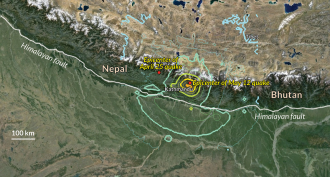 Earth
EarthMajor new quake rattles Nepal
A new earthquake struck Nepal on May 12. Its tremors were centered on a new region.
-
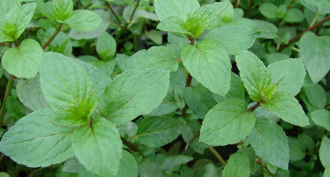 Environment
EnvironmentNews Brief: Smokin’ plants
A new study points out how some herb teas and spices could have accidentally picked up nicotine from the smokers working around them.
-
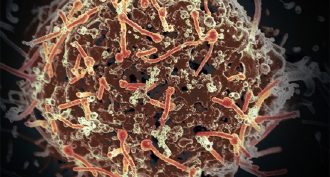 Microbes
MicrobesNews Brief: Ebola’s dead stay infectious for a week
The Ebola virus doesn’t die with its victims — at least not right away. A corpse may host live virus for up to a week after death, a new study finds.
-
 Space
SpacePicture This: Smiley face in space!
Ancients used to ‘see’ the outline of animals and other well-known things as constellations in the night sky. Now astronomers have done much the same thing. But they’ve spotted a more distant — if totally modern — shape: a smiley face!
-
 Environment
EnvironmentArtificial sweeteners pollute streams
Fake sugars sweeten foods without adding calories. But most pass right through the body, down the toilet, into water treatment plants — and from there, right into lakes and streams.
-
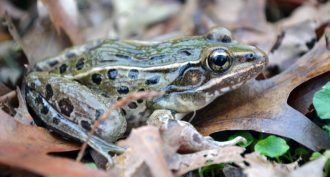 Animals
AnimalsNew frog discovered in New York City
This animal could almost be mistaken for the southern leopard frog — until it opens its mouth. The call the males issue has proven unique.
-
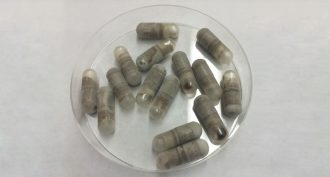 Health & Medicine
Health & MedicinePills of frozen poop fight killer disease
Popping poop pills? Of course it sounds yucky. But researchers find it might just be one of the most effective ways to knock out a very serious — and tough-to-kill — intestinal disease.
-
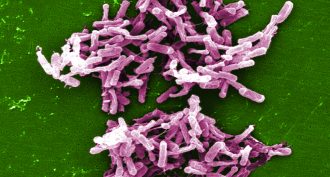 Microbes
MicrobesExplainer: What is C. difficile?
Over the past two decades, these severe bacterial infections have evolved from a no-big-deal occurrence to a common, life-threatening problem.
-
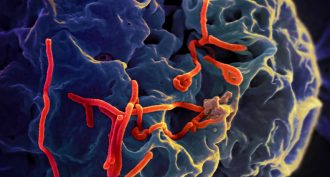 Health & Medicine
Health & MedicineNews Brief: First cases of Ebola acquired outside Africa
Health workers who had worn extensive protective gear still became infected with Ebola while treating patients in Spain and the United States.
-
 Science & Society
Science & SocietyTeen wins Nobel for support of educating girls
Malala Yousafzai survived an attempt on her life by extremists who protested her efforts to see that girls be allowed to go to school. Upon recovery, she expanded her outreach to beyond her Pakistani homeland. She has just become the youngest-ever Nobel Prize winner.
-
 Physics
PhysicsNobel goes for making white LEDs possible
The 2014 Nobel Prize in Physics has been awarded to scientists who discovered how to make blue light-emitting diodes. People really wanted white LEDs. The missing ingredient in making them was a building block: the blue LED.
-
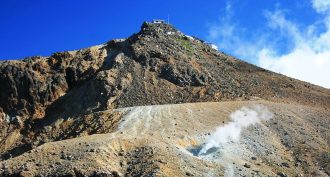 Earth
EarthNews Brief: Volcano in Japan kills dozens
Japan’s Mount Ontake is a favorite hiking spot. But an unexpected midday eruption on September 27 surprised hundreds on the mountain. Unable to escape, dozens near the summit died.